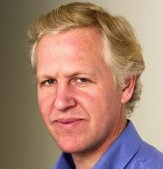When I go to Stamford Bridge, I always try to walk via neighbouring Brompton cemetery.
The overgrown graves and weathered tombstones put things nicely into perspective.
Perhaps this helps to explain why - in the middle of the Leaders in Football debate on the race for the 2018 World Cup - I found myself thinking that none of it actually counted for very much.
This unworthy thought was triggered, over and above the headstones and the sense that the really big sports story of the day was unfolding a couple of hundred miles away, by the performance of Harry Been, chief executive of the Holland/Belgium bid, in the event pitting him against his counterparts from England, Russia and Spain/Portugal.
Been was amusing. Asked what his bid learnt from this year’s World Cup, he replied: “Where there’s a will, there’s always a way to reach the final.”
He made some telling points: “Most of our citizens speak more than one language”; if FIFA does not embrace joint bids, the vast majority of countries could never aspire to host a World Cup.
His timing was good.
And his piercing gaze and aquiline nose looked positively presidential.
If this had been an electoral debate, Been and his party would be leading the opinion polls this morning.
Nor is this an isolated occurrence.
For nearly a year now, whenever I have endeavoured to make a direct comparison between bidders, Holland/Belgium has been consistently up there with the best.
In Cape Town last December, when we gathered for the World Cup draw, their promotional video was one of the top two.
They have produced the best bid shirts - and ties (not necessarily such a trivial matter, as the London 2012 Olympic bid might testify).
They have one of the more sensible slogans.
They came up with a particularly imaginative - and practical - gift for FIFA’s bid inspectors.

And they have made the most consistently successful attempt to inject just a touch of humour into what they do of any bid I have ever encountered.
OK, even with their array of charismatic footballing greats, they can’t quite match the David Beckham “Wow” factor, but it is hard to think of where else they have come off second best.
Oh and let’s not forget that the two countries hosted – in Euro 2000 – what by common consent is one of the best international football tournaments ever staged.
And yet, despite the quality of their campaign, I know of virtually nobody who gives Holland/Belgium a serious chance of winning the right to stage the 2018 World Cup.
I recently had them down to win just two votes of the 24 available from FIFA Executive Committee members.
After talking things through with some experts, I am prepared to concede that this figure could climb to three or four.
But this will not be enough.
To have a chance of beating Russia - who, in Alexey Sorokin, have the only bid chief who looks young enough to actually play in the 2018 World Cup - I think another bidder needs to finish ahead of them in the opening round of voting.
That is likely to require a score of at least eight.
That sort of tally will no doubt be easier to achieve if the United States, who participated at Leaders in Football in the 2022 debate, do not stay the course in the 2018 race.
(And, on this point, Sunil Gulati, the US bid’s chairman, went as far as to acknowledge that “the focus has probably always been a little bit more on 2022”.)
But all the signs at present - not least the way that Gulati and Chuck Blazer, the US’s FIFA ExCo member, were sat next to David Dein in the front row of the audience for this 2018 debate - are that CONCACAF’s three votes would pass to England in the event of a US withdrawal.
There are those who say, in effect, that I am wrong and that Holland/Belgium could easily poll six or seven votes in the opening round.
That would be a refreshing outcome in many ways and would go a long way to showing that attributes such as Been’s debating prowess are not as irrelevant as I imagine.
But I have to say, at this moment, I would be very surprised if that is what happens.
David Owen is a specialist sports journalist who worked for 20 years for the Financial Times in the United States, Canada, France and the UK. He ended his FT career as sports editor after the 2006 World Cup and is now freelancing, including covering the 2008 Beijing Olympics and 2010 World Cup. Owen’s Twitter feed can be accessed at www.twitter.com/dodo938

